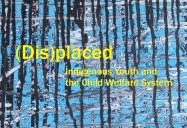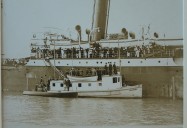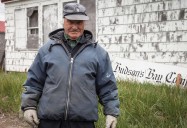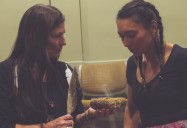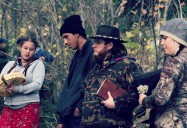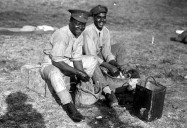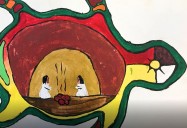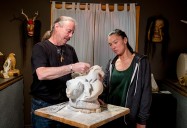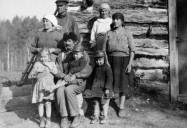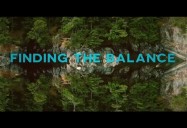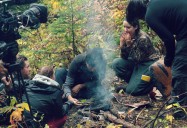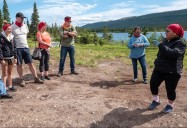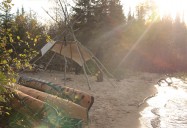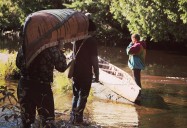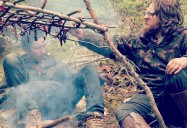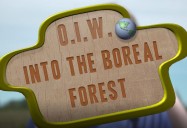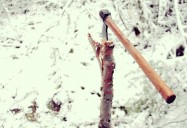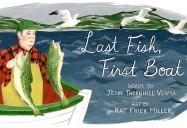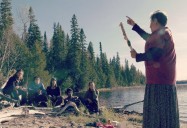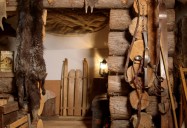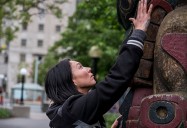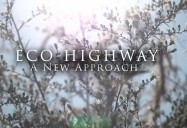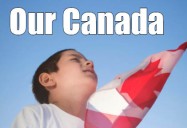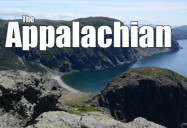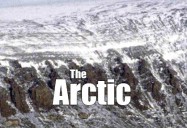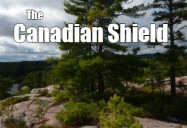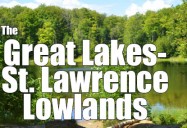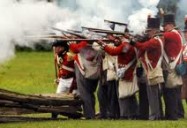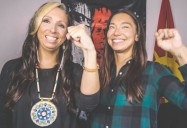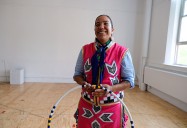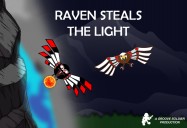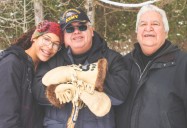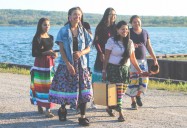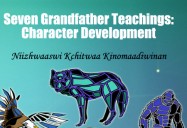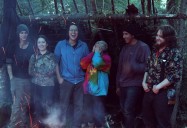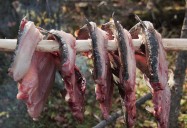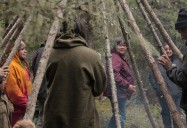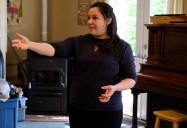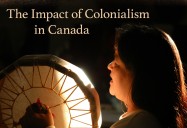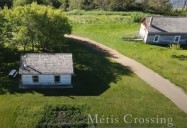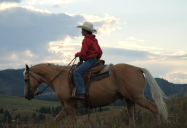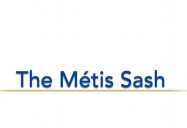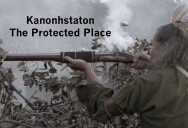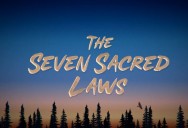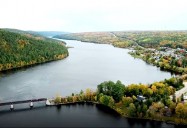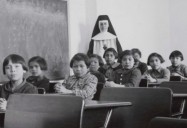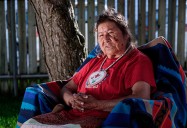
- TDSB: Art
- TDSB: Black History
- TDSB: Canadian & World Studies
- TDSB: Canadian Social Studies & First Nations
- TDSB: Career Studies & Character Ed
- TDSB: Equity & Diversity Studies
- TDSB: Financial Literacy
- TDSB: Food, Fashion & Clothing
- TDSB: Health & Phys Ed
- TDSB: Health/Safety/Abuse
- TDSB: Language
- TDSB: My Job Rocks Series - Career Education
- TDSB: PBS Playlist
- TDSB: Science
- TDSB: Social Sciences & Humanities
- TDSB: Social Studies
TDSB: Canadian Social Studies & First Nations
Black Experiences: Journeys to Canada Series
Width Height
Subject(s): Black History, Canadian History, Canadian Social Studies, Canadian World Studies, History, Social Studies
Grade Level: 6 - 8, 9 - 12, Post Secondary
From enslaved people during the eras of New France and British North America, to the community of Africville in Nova Scotia, this program examines a variety of Black experiences from Canada's history.
Learn about those seeking freedom from enslavement in the United States during the American Revolution and during the time of the Underground Railroad. Also, the experiences of African-American migrants arriving in British Columbia during the 1850s and those journeying to the Canadian Prairies in the early 1900s are outlined.
|
Running Time: 18:00 Country of Origin: Canada Captions: |
Producer: Past Perfect Productions/6801260 Manitoba Inc. Copyright Date: 2017 Language: English |
Video Chapters
-
Black Experiences: Journeys to Canada Series 18:00
From enslaved people during the eras of New France and British...
TRANSCRIPT
Close- [MUSIC PLAYING]
- People from Africa and of African descent have a long history in Canada, before and after Confederation in 1867. Some have come as immigrants, making economic and social decisions in an attempt to build better lives for themselves and their families. The secret roots of the Underground Railroad were used by enslaved African-Americans journeying to Canada in the hopes of being free.
- However, when looking back at the history of New France and British North America, we see a time when black people were brought against their will as property. They were brought as enslaved people.
- [MUSIC PLAYING]
- As early as the 1400s, European powers supported and facilitated the capture of African people, forcing them aboard ships and enslaving them to work in labor intensive colonial enterprises in the Americas and other parts of the world. Usually under very difficult, abusive, and cruel conditions. The use of enslaved people in New France, what is now Canada, began with French colonizers in the early 1600s.
- New France was part of transatlantic slave society. It had active practices of slave holdings of people of both African origin and also people of indigenous origin.
- Records show that the first enslaved black person in New France was a six-year-old boy originally from Madagascar who arrived in 1629. The use of enslaved people in New France continued into the 1700s. In the 1750s, there were hundreds of black enslaved people in Quebec. Most lived in or near Montreal and worked as house servants. Some worked as farm laborers.
- We have seen historians use records, including court records, to try to get a sense of what enslaved people's lives were like. What black people's lives were like. And I think in general they have to conditions of obviously great, great difficulty. People had short life expectancy.
- Virtually all people of African descent who lived in New France from the 1600s to the mid-1700s were enslaved people, but the first black person in new France is believed to be Mathieu de Costa. De Costa was not a slave. Around the year 1606, he was employed as a translator, helping the Acadians trade with the Mi'kmaq.
- Life changed a New France following the conquest of 1760, when Britain assumed control of the colony. One aspect that did not see much change was the slave system, as the British allowed slaveholders in New France to keep their enslaved people.
- While the practice of enslavement operated in British North America into the 1800s, there were opportunities for some enslaved black people to gain their freedom before the system was fully abolished. During the American Revolution, which took place from 1775 to 1783, forces in the 13 colonies were fighting for independence from Britain. But there were colonists who supported the British, called loyalists. Among the loyalists were many enslaved black people who escaped from their Revolutionary owners and fought on the side of the British. As a reward for their loyalty, British authorities freed them from their status as enslaved people. They are often referred to as Black Loyalists.
- About 3,500 freed Black Loyalists relocated to British North America, what is now Canada, following the war. They settled in upper Canada and the Maritimes. The majority settled in Nova Scotia, specifically in Birchtown. Though they were promised land and help with settling in the area, most Black Loyalists were disappointed as they tended to receive small plots of land with poor soil.
- Life is very hard for these Black Loyalists, and many choose to leave and set sail for Britain. Many return to the United States-- not a significant number, but return to the United States. And many, as we know through books such as Lawrence Hill's The Book of Negroes, attempt to set up a fledgling colony in Africa, in Sierra Leone. And that of course is motivated in large part by a desire to escape what they see as the persecution that they're experiencing in the Maritimes.
- Also around the time of the American Revolution, many white Loyalists left the United States and settled in British North America. These loyalists brought with them whatever property they could, including a total of around 2,000 enslaved people.
- I think it's important to note what exactly we mean by Black Loyalists, because while there are those who come to Canada having fought on the side of the British, there's also a large contingent who are brought by their masters, white Loyalists. And of course, these people are brought against their will.
- British America has a complicated relationship to the history of slavery. It didn't have a very well developed or clear or established legal practice around regulating slavery. The colony that eventually became Prince Edward Island was the only colony that passed a clear law regulating slavery. But none of the other colonies of British North America in the period of the American Revolution banned slavery either. And so all of those colonies had traditions and practices of slavery.
- Towards the end of the 18th century, while settlers from the United States were allowed to bring their enslaved people to upper Canada, legislative changes were also being proposed to end the system. In 1793, John Graves Simcoe, Lieutenant Governor of Upper Canada, attempted to pass a law ending slavery and the colonies, but was met by forceful opposition from many members of the legislature who owned enslaved people themselves or otherwise profited from the system. An amended act passed in July of 1793, but the act only set in motion a slow phasing out of the slave system.
- In 1833, the Slavery Abolition Act received royal assent in Britain. Slavery was abolished throughout the British colonies. The act took effect in 1834, and all persons enslaved in British North America gained their freedom.
- And when that happened, the enormous kind of resistance and the extent to which British slaveholders were invested in slavery continuing as a system was made in a number of ways. And one of them was that the House of Lords had to essentially be convinced to pass the legislation that was to abolish slavery by passing an additional piece of legislation that compensated slave holders for their enslaved property, for their human property.
- Though it took until the 1830s for slavery to end in British North America, by the 1790s Upper Canada was coming to be seen as a place enslaved African-Americans could be free from the system of slavery. This was connected to John Graves Simcoe's act to limit slavery passing in 1793. As one of its provisions stated that any person entering Upper Canada could not be enslaved. They would be a free person.
- More and more enslaved people in the United States made the journey to Canada. Out of this, a secret network developed. A network that continued to grow through the early 1800s. This network became known as the Underground Railroad.
- The Underground Railroad was a network of people-- black, white, and indigenous-- opposed to slavery who wanted to help enslaved people escape to British North America, free US states, and other territories. Underground meant it was secret. There was no real railroad, just many secret routes. Escape attempts were very dangerous. Often runaways hid in swamps and woods by day and traveled by night. Many walked hundreds of kilometers with little to no food.
- Along the way there were people willing to hide, feed, and guide them on the secret routes. Many of those who helped on the routes were formerly enslaved people now living in British North America who returned many times to help others escape. There was great risk in trying to escape from enslavement, whether to free US states or to Canada.
- Then, in 1850 Canada became an even more important destination after the United States passed the Fugitive Slave Act.
- What the Fugitive Slave Act does is it empowers with federal authority slave owners to recapture escaped slaves. The Fugitive Slave Act makes all of America, essentially, an unsafe space for escaped slaves. So Canada becomes even more vital, and the Underground Railroad really expands.
- The covert organization used railroad terms as code words. Those who fled from enslavement were called passengers or cargo. Safe places to stop and rest were called stations. Those who help people move from place to place were known as conductors.
- Perhaps one of the best known conductors is Harriet Tubman. Born in 1820, Tubman escaped from slavery when she was a young woman. She moved to St. Catharines, Ontario in 1851. She was a guide who made the dangerous trip back to the United States 19 times, and helped over 300 people escape to British North America.
- After arriving in their new country, the situation for those escaping enslavement was not always an easy one.
- People who moved north with the expectation that they would find greater promises of British justice often were disappointed to find colonial societies that were ordered along ideas of white superiority. And in particular offered black peoples' lives defined by segregated systems of education. By limited prospects for employment. By often a kind of regulated set of social spaces.
- In 1865, the 13th Amendment to the US Constitution ended the US system of slavery as it existed. Which also meant the end of the Underground Railroad. By that point, over 30,000 African-Americans had made the dangerous trek north of the US border.
- Around that time, African-Americans were also migrating to the west coast of British North America. The first large movement of African-Americans to a west coast colony occurred in 1858, when around 600 black people from California sailed north to Victoria. James Douglas, governor of the colony of Vancouver Island, invited black Californians to come and settle, offering them cheap land and an exemption from land taxes for two years. The settlers were motivated to leave California after dealing with discrimination in their day to day lives and discriminatory government policy.
- After sailing from San Francisco, the colonists settled in Victoria and in parts of the mainland colony of British Columbia. Many found work as laborers or domestic servants. Others opened stores and restaurants. Some became police officers. Some formed an all black military unit in 1860 called the Victoria Pioneer Rifle Company, also known as the African Rifles. While some were able to establish themselves in the community, life in Victoria did not turn out well for all of those migrating from California.
- The black community developed in these years, and then fairly soon afterwards is really diminished in numerical terms. And part of what that diminution reflects is the return migration of people who don't find that these British colonies necessarily offer them that much better, or anything better at all, and perhaps just as often in many ways the experience is worse, and return or find other places to live out their lives. But the people that do stay often become kind of the bedrocks of sort of developing black communities in those cities.
- After the creation of the Dominion of Canada in 1867, government authorities work to populate the West through immigration. Clifford Sifton, Federal Minister of the Interior from 1896 to 1905, promoted a campaign enticing immigrants from America, Britain, and parts of Europe to settle on the Canadian prairies. They were offered large plots of cheap land.
- In the early 1900s, African-Americans responded to the Canadian government's call for settlers, including those abandoning parts of Oklahoma and Texas for Western Canada. They migrated to escape an increasingly racist climate reinforced by laws of racial segregation. The potential arrival of black settlers concerned many white Canadians who had their own prejudices. Protests, spearheaded by a number of influential white organizations and several prominent newspapers, pressured the federal government to close the border to black immigration. A full ban did not happen, but Canadian officials discouraged African-American settlement by forcing potential black immigrants to undergo in-depth medical examinations when attempting to cross into Canada. Something other immigrant groups were not subjected to.
- In spite of these efforts by Canadian officials, some African-Americans did make new homes in Western Canada. Many of the migrants established rural communities in Alberta, and made homes in the city of Edmonton. Others had also settled within rural communities in Saskatchewan. While they often had a harder time finding employment, with pay sometimes much less than what white people received for the same work, many of the black settlers successfully carved out lives for themselves and their families.
- The black settlement of Africville, which was located in Halifax, Nova Scotia, is an example of a black community that dealt with discrimination and poor treatment while still having a dynamic social and cultural life. Africville's roots extend back to the mid 18th century. People living in Africville included descendants of Black Loyalists, formerly enslaved people from the United States and Jamaica, and black refugees who served in the War of 1812. The people in Africville owned their own land, homes, and businesses. Even though Africville's residents pay taxes to the city, they receive few services. Africville did not have running water, a sewage system, fire services, or police services. Factories, a garbage dump, and a prison were built near Africville, and railway tracks ran right through the community.
- Eventually, Halifax city council voted to destroy Africville, as the community was torn down piece by piece from 1964 to 1969. The people who lived there were moved into public housing. This was done without their consent.
- And it mirrors, in many ways, what we see happening to majority black neighborhoods in the United States in and around this time, in which people of color and their spaces being removed in the name of progress.
- Despite their poverty, the people of Africville had a strong sense of community. They would have preferred to stay where they were and work with the city to develop better services. In more recent years, former residents have gathered in the area on a regular basis, maintaining a sense of community, commemorating their roots, and challenging the wrongs inflicted by the city.
- In 1996, Africville was commemorated as a national historic site. In 2010, the injustice of Africville's destruction was acknowledged when the mayor of Halifax made a formal apology.
- These are just some of the stories of how people of African descent have journeyed to Canada. In more recent decades, black immigration to Canada has increased significantly when compared to the late 1800s and early 1900s. But it is important to remember the stories of those who journeyed to Canada many generations ago.
- As an educator, it is often difficult to try to impress upon students the longevity of blackness in Canada for centuries. And if not as significant in their actual number-- physical peoples-- it's been instrumental in the way in which the Canadian state and the Canadian nation has formed itself.
- [MUSIC PLAYING]
TRANSCRIPTS:
Interactive Transcript
Transcript (PDF)
